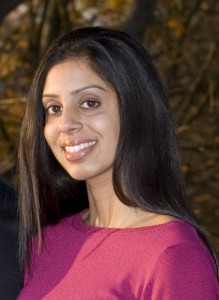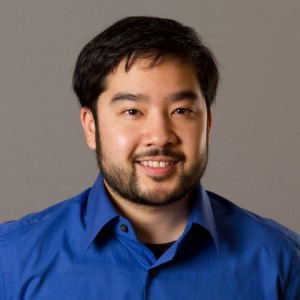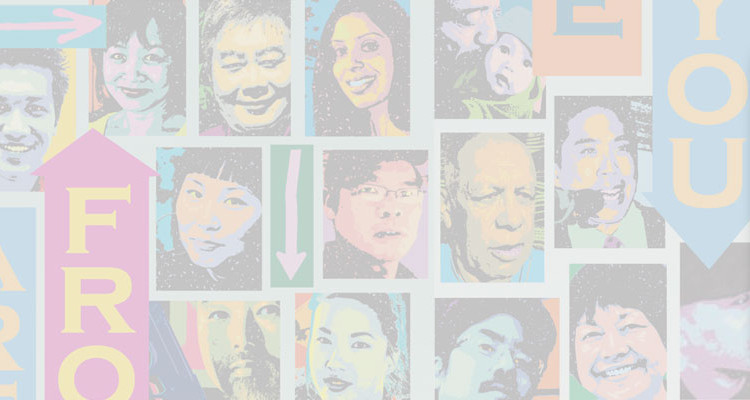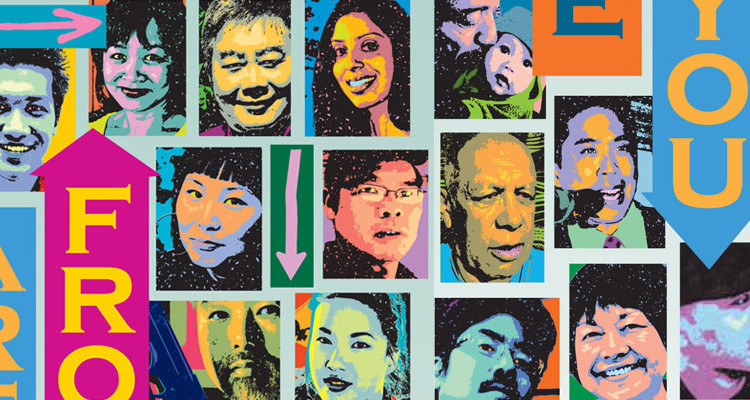Contributed by Anthology author, Matthew Salesses (essay reprinted from Glimmer Train)
I Didn’t Understand My Book Until After I Sold It
Eleven years ago, I started a novel about expatriates in Prague. I was an expatriate in Prague, a Korean adoptee teaching English as a Foreign Language to executives at Czech companies. It was my first year out of college. I wrote a Pynchonian cast with a white American kid at the center. A political novel about the effects of American culture on Eastern Europe.
The year afterward, I went to Korea for the first time. I told myself I didn’t care to know anything about my birth family. I told myself I was simply curious. I started dating a woman who would become my wife. After that year, we dated long-distance while I did an MFA at Emerson College, in Boston, with the idea that I would do a little tinkering and publish my masterpiece.
Of course, my book was no good. I spent my MFA combining my Anglo American protagonist with his Asian American friend, setting the book back in time to 2002 when a major flood devastated Prague, and finding a consistent style. The other big thing I did was start therapy. I wasn’t talking about my adoption yet, but my protagonist became adopted.
Then I took a year off to go back to Korea and get married, and I lost my job there for missing work on Christmas, the best thing that could have happened to me. I started the book over, writing five or six hours a day. My protagonist was now thinking back on Prague from a hospital, dreaming about a ghost woman. I submitted that draft as my MFA thesis—it finally had the title The Hundred-Year Flood—and revised for two years afterward. I found my first agent and revised with her suggestions. At the same time my daughter was born, my agent sent the book out to publishers. I had written well over a thousand pages to get two hundred I almost liked.
The rejections rolled in. When I returned to the page yet again, I couldn’t seem to face the book I’d written. I ran into depression, mostly related to my changing worldview. I was a new father, and part of fathering a biological child meant facing how much my birth culture and birth family mattered. For one, I didn’t know what to tell the pediatrician about my medical history, what diseases my daughter might chance facing. In my writing, I started exploring my protagonist’s Korean side. After another couple of years, I found a new agent who sent the novel out again.
Finally, after a decade of working on the book, a decade after I lived in Prague, I got my break. It started with a trip back to the City of Spires. I led a writing trip to the Czech Republic and as if it was a magic charm, soon after that trip an editor asked to see a revision of my first three chapters. I rethought who my protagonist was after ten years of living with him. He was different from who he’d started out as, but he wasn’t right yet. I kept revising. My editor bought The Hundred-Year Flood on the promise of further revisions.
Almost as soon as I sold the book, I realized that other people would read it. I had been working on in private for so long. Of course I had hoped for this, but now it was real. That reality took the book out of a safe space, a silent space. I had to answer, publicly, the question of what really haunted my protagonist.
In the middle of my edits, I went to a football game with a mentor. He said he had sold a novel about the one-who-got-away. During his own final edits, he asked himself if he really was still hung up on his ex. The question made him realize that the love story at the center of his book was a father-daughter relationship. It was a book about the writer’s love for his kids. That was the love that mattered to him now.
I thought hard about what he had told me. He had done a kind of self-therapy. I knew that some aspect of my own novel had always been off. If other people were going to judge me by this book, I had to judge myself. All of the stuff about Korea, about haunting, about myth—what was that? I had thought my book was about the loneliness and confusion I had felt in Prague as an Asian American expatriate. I had gone through draft after draft trying to get close to my protagonist. What I was missing, though, was what I had been denying in Prague and what had made me leave for Korea directly afterward.
In other words, it took me until my final revision to see that I was writing a sort of love letter to my birth mother. I started the novel before I ever returned to Korea, before I married a Korean woman, before I admitted to myself that I thought about Korea at all. Eleven years earlier, when I went to Prague because I was too scared to go to Korea, I started a novel that was always about connecting with my roots and my inability to do so. If the book is about loneliness and confusion, it is about the loneliness and confusion of adoption. I needed eleven years of self-therapy, of revising my words and my identity, to see that I had been writing about my own past all along.
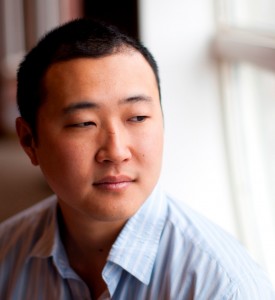 Matthew Salesses was adopted from Korea. He has written about adoption and race for NPR Code Switch, the New York Times Motherlode blog, and Salon, and his fiction has appeared in PEN/Guernica, Glimmer Train, American Short Fiction, and Where Are You From: An Anthology of Asian American Writing, among others. He is also the author of I’m Not Saying, I’m Just Saying and Different Racisms: On Stereotypes, the Individual, and Asian American Masculinity. The Hundred-Year Flood is his first full-length novel.
Matthew Salesses was adopted from Korea. He has written about adoption and race for NPR Code Switch, the New York Times Motherlode blog, and Salon, and his fiction has appeared in PEN/Guernica, Glimmer Train, American Short Fiction, and Where Are You From: An Anthology of Asian American Writing, among others. He is also the author of I’m Not Saying, I’m Just Saying and Different Racisms: On Stereotypes, the Individual, and Asian American Masculinity. The Hundred-Year Flood is his first full-length novel.
“This is an exquisite, unforgettable book about the extraordinary demands of identity and the transformative power of art and love.”
— Catherine Chung, author of Forgotten Country

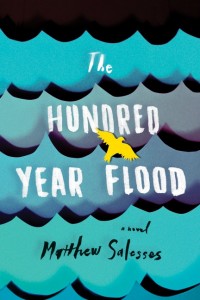
 Sapna Cheryan and Zach Katagiri, two of our Anthology authors, recently published an article in
Sapna Cheryan and Zach Katagiri, two of our Anthology authors, recently published an article in 